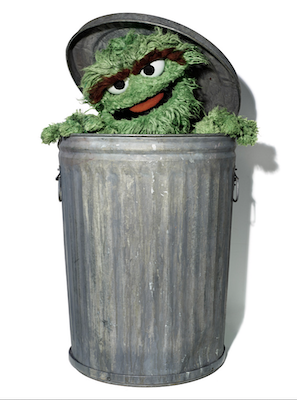Given Oconee County’s proximity to Athens we often can’t help but be aware of the political landscape within the People’s Republic of Athens. The powers that be in Athens are exploring the possibility of re-municipalizing trash service because a handful of residents have complained about “too many trucks on their street” because multiple providers are permitted to serves within the city. Apparently if the market does not provide a service deemed essential, then that is proof of “market failure.” Likewise, if the market provides too much of a service deemed essential, that too is “market failure.” Heads I win, tails you lose.
The justification to proceed down this path adheres to the socialist doctrine of better societal outcomes through the increased efficiency of a monopoly provider. Apparently competition is wasteful and inefficient. Perhaps. But putting political lackeys with zero experience, unlimited budgets and little to no oversight in charge is not exactly a recipe for optimal outcomes either. The efficiency argument is not satisfied until a complete takeover by the government of all business. In other words, state run monopolies are a-ok because enlightened omniscient angels run them. Of course the trust busters come out of the woodwork the second two firms try to merge for purposes of efficiency gains through consolidation of resources.
Sure, government run services can appear to “work” because they are propped up with tax money taken at gunpoint (fail to pay your taxes and you’ll see how quickly the guns come out). The extent to which they are subsidized is directly proportional to their operational losses. Losses represent massive inefficiencies insofar as they have taken resources of a higher value and transformed them into products of a lower value. We want profits – profits mean lower valued inputs were transformed into something regarded as more valuable.
Efficiency is a measure of how many resources are needed to meet some particular end. There are many paths to reach some end but since none of us are omniscient there is no way to know a priori which is the shortest (most efficient) path. It is an iterative process. We start with assumptions and use the profit/loss test to give us feedback. Profit means you’re headed in the right direction; losses the opposite. The desire to make more money drives us toward seeking out efficiency gains. The part people (i.e. busybodies who know nothing of how an industry operates) object to is the time component. It takes time for many individual firms to experiment and sort out what works best, with the successful firms thriving and the inefficient firms going out of business. It doesn’t happen overnight, but it does eventually happen.
Maybe that will happen with the trash pickup and in a few years (or months) there will be far fewer providers. Or maybe not. Maybe, just maybe, the present arrangement is the most efficient. Maybe some carriers compete on price while others compete on service. I can understand why it might seem more efficient to have fewer providers, but when has a government backed monopoly ever been regarded as the most efficient arrangement (i.e. performing so well it did not require subsidies through taxes). I’ll wait.
Monopolies have no incentive to improve and become more efficient. But even a company that dominates a sector at least tangentially has some incentives to provide the best service they can as they know a new company could arise and gain market share. But a government backed monopoly? That is the worst of all worlds since that provider knows it is ILLEGAL for anyone to compete with them. They can literally sit back and provide the worst service possible and they’ll still receive the same income stream.
Government run systems incorporate the human instinct toward laziness and magnify it’s vice-like qualities because self-interest can’t be rewarded via work but rather only through social ladder climbing in the state apparatus (not what you do, but who you know). The free market, in contrast, takes that same human inclination toward laziness and transforms it into a virtue. The desire to do more work with less energy is the definition of seeking greater efficiency. This drive flourishes only because self-interest is rewarded and not outlawed. This drive toward greater efficiency and profit benefits both the producer and the consumer.
“It is not from the benevolence of the butcher, the brewer, or the baker that we expect our dinner, but from their regard to their own interest.” Adam Smith
